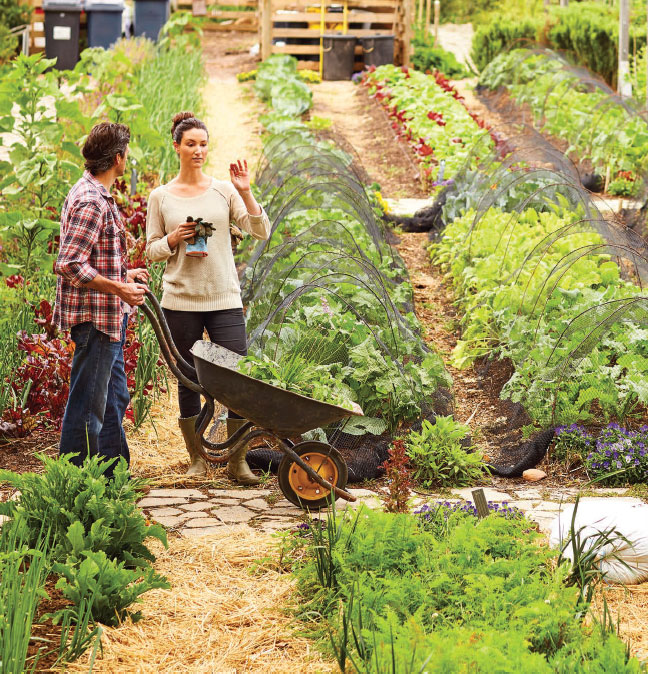A primary goal of many community gardens is to help residents learn the importance of healthy eating and how to grow their own food. That’s also the mission of the Hollows Community Garden and Learning Center operated by Families in Transition in Manchester. “The ultimate goal is to help provide families at our emergency shelter with fresh fruits and vegetables,” says Michele Talwani, vice president of economic development and marketing for Families in Transition. “We also want to teach kids living in poverty where foods come from and encourage healthy behaviors and self-sufficiency.”
Still under development, the garden is located on a half-acre lot in the center of the city, at the corner of Spruce and Massabesic Streets. This spring, community members and volunteers will plant the garden for the first time. Residents of Families in Transitions’ family shelter will also pitch in. Long-term plans include a community center with a learning center and teaching kitchen as well as an area to sit and enjoy the green space.
Boscawen Community Garden, Boscawen
(603) 753-9188
WWW.TOWNOFBOSCAWEN.ORG
Operated by the town’s agricultural commission, the Boscawen Community Garden is located at the intersection of Corn Hill Road and Woodbury Lane. The garden was started to supplement offerings from the local food pantry and provide opportunities for residents to grow their own food. The plots are a bargain: a 12-by-12-foot space is $15. There’s also access to a shared herb garden.
Sycamore Community Garden, Concord
WWW.SYCAMORECOMMUNITYGARDEN.ORG
On sunny days, you will hear the hum of several languages in the Sycamore Community Garden, which is tucked in a grassy fi eld at NHTI in Concord. Women in colorful dresses tend to their individual garden plots while children play hide-and-seek among the 10-foot-tall African corn stalks. Sycamore offers recently arrived immigrants and refugees familiarity in a new place. Gardeners hail from 10 different countries, including Nepal, Bhutan, Iraq, Burundi, Nigeria, and Somalia. “It’s truly what makes them feel at home,” says longtime community garden volunteer and former garden manager Cheryl Bourassa.
The organic garden, with 186 plots, connects new Americans to their homelands and gives them an opportunity to help feed their families by growing familiar fruits and vegetables. Designed to serve low-income families, the garden is also accessible via the local bus line, an important consideration for aspiring gardeners who don’t have reliable transportation. Crops include African grinding corn, okra, cucumbers, tomatoes, peppers, hot peppers, potatoes, kale, daikon radishes, African eggplants, beans of all kinds, and more.
New Hampshire Food Bank Garden, Manchester
New Hampshire Food Bank
(603) 669-9725, ext. 238
WWW.NHFOODBANK.ORG
Now in its eleventh season, the one-acre garden operated by the New Hampshire Food Bank grew more than 13,000 pounds of vegetables last year to supplement the organization’s efforts to feed New Hampshire residents in need. Servicing 430 agencies and food pantries around the state, the Food Bank’s production garden is one way the organization addresses food insecurity. During the growing season, volunteers from a variety of service organizations and the corporate community prep, weed, water, compost, and tend more than 130 different-sized beds.
“We grow everything from acorn and butternut squash, zucchini, and tomatoes to basil, eggplant, cabbage, and corn,” says Garden Coordinator Jason Rivers, who trains garden volunteers. “I like working with the public and introducing them to gardening. Plus, when you see it all come together and know that the work benefits others, it’s a good feeling.”


 View Print Edition
View Print Edition